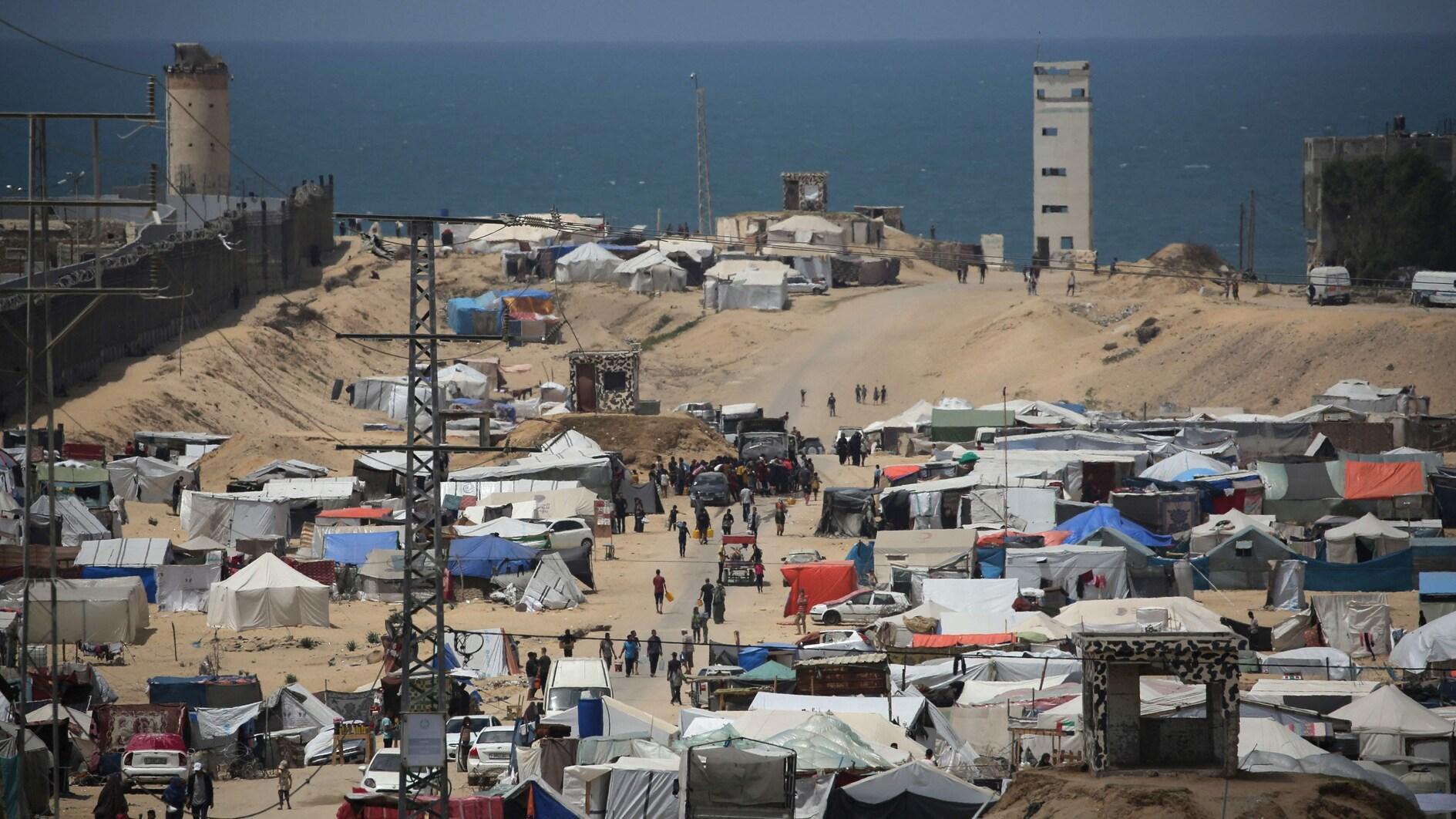Eyes on Europe over Greece debt meeting
ATHENS / THE HAGUE

AFP photo
After Greek Prime Minister Alexis Tsipras’ administration handed the package to eurozone partners just two hours before a midnight deadline on July 9, eyes are now on how European Union members and accompanying institutions will assess the package.A make-or-break summit, bringing together the leaders of all 28 EU nations, not just the 19 which use the euro, will be held on July 12. Before that, European finance ministers will hold a special meeting to weigh the new proposal.
The European leaders will decide whether to accept Greece’s reform plan in exchange for another huge bailout, amounting to tens of billions of euros, or force a “Grexit” from the eurozone, as underlined by analysts.
The offer, set out in a 13-page document, concedes to Greece’s paymasters on several key points that Tsipras’ ruling coalition, and the Greek voters in a referendum last weekend, had previously fiercely opposed.
The Greek parliament was scheduled to vote on July 10 on a request by Tsipras for support for his negotiation of measures to satisfy creditors.
“We face critical decisions,” Tsipras told Syriza lawmakers, according to the state news agency ANA, as reported by Agence France-Presse.
It remains to be seen how skeptical eurozone partners, and Germany in particular, respond to the submission. Several had openly suggested Greece could be cut loose from the eurozone.
Eurogroup President Jeroen Dijsselbloem said eurozone finance ministers may make a “major decision” when they hold the special meeting on July 11 to weigh the new Greek proposal for emergency funding, as reported by Reuters.
Speaking after a conference call on July 10 with the heads of the International Monetary Fund (IMF), the European Commission and the European Central Bank (ECB), Dijsselbloem declined to comment on the content of the document.
“I am waiting for the institutions to evaluate the document. It is an extensive document and you need to go through it to see if it is really concrete enough,” he told journalists, as quoted by Reuters.
Dozens of people at the ECB and IMF are assessing the proposal sent on July 9, he said.
Earlier, Dijsselbloem, who is also the Dutch finance minister, said broad support in Greece gives the document credibility, but they have to carefully consider it and see if the numbers add up.
“One way or the other, it is a very major decision we need to take,” he added.
The proposal aims to procure a financing deal “for three years, debt adjustment and a front-loaded investment package of 35 billion euros [$38 billion],” a Greek government source told AFP.
Tsipras is taking a political gamble by making any concessions to creditors’ demands.
Hardliners in his Syriza party and coalition partner the Independent Greeks have obstinately rejected further austerity.
And Greek voters on July 5 roundly voted “No” to accepting tough conditions attached to the last Greek bailout that expired June 30.
Greeks overwhelmingly want to keep the euro. More than three-quarters are against losing the single currency and returning to the drachma, surveys consistently show.
Under its new proposal, Greece is, however, agreeing to discourage early retirement and seek higher health contributions from pensioners.
Tax on shipping, corporate tax and a luxury tax would be increased and a crackdown would be energetically pursued on tax evasion, according to the submitted document, as reported by AFP.
In it, Greece also pledged to raise sales tax revenue by the equivalent of 1 percent of the gross domestic product (GDP), sell the state’s remaining shares in telecoms giant OTE and commit to privatizing the ports of Piraeus and Thessaloniki by no later than October.
Instead of abolishing a 30 percent tax break on all its islands, as requested by its creditors, the government said for now it will only scrap the measure on the wealthiest islands and those most popular with tourists.
And, whereas the creditors had demanded a 400-million-euro reduction in military spending, Athens is offering to cut 100 million this year and 200 million in 2016.
Tsipras hopes the measures will pass muster with Germany and other hostile eurozone countries, and open the door to creditors discussing another round of relief from Greece’s suffocating 320-billion-euro ($350-billion) mountain of debt, as reported by AFP.
French President Francois Hollande sounded upbeat on July 10, saying, “The Greeks have shown a determination to want to stay in the eurozone because the program they are presenting is serious and credible.” He, however, added: “Nothing is decided yet.”
Germany, Europe’s largest economy, has ruled out debt forgiveness.
“I have said that a classic ‘haircut’ is out of the question for me and that hasn’t changed between the day before yesterday and today,” German Chancellor Angela Merkel told reporters on July 9.
















